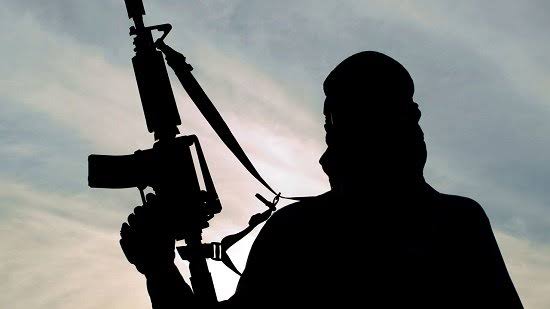Nigeria has had many indigenous carriers, but none have been able to match the fame and fleet size of the now-defunct Okada Air. Established in May 1983 by billionaire businessman Sir Chief Dr. Gabriel Osawaru Igbinedion, the Esama of Benin Kingdom, Edo State, Okada Air became Nigeria’s first private airline. It was based in Benin City, Edo State, and began its journey to success with a fleet of 2 HS125, 1 Caravelle, and four BAC 1-11 aircraft acquired through British Caledonian from Sir Freddie Laker of Laker Airways.
This article will examine the rise of Okada Airlines, its peak, and eventual disappearance from the Nigerian airspace. We will also discuss the factors that contributed to its downfall and the legacy it left behind.

The Early Years Of Okada Air
With a staff strength of 110 and load factors of 34 percent, Okada Air’s mission was to alleviate the plight of the teaming Nigerian airline users who had to go through merciless situations to secure both domestic and international flights. Between 1981 and 1983, the number of passengers flying domestic and international routes increased from 2.3 to 3 million, and 60% of this increase was for the domestic network. Thus, when Okada Airline commenced its official flights finally in October 1983, it had as one of its principal missions the alleviation of the pressure on Nigeria’s only carrier – the Nigeria Airways.
The Airline was greeted with mass acceptance from Nigerians and it quickly became a favorite for Nigerian domestic travelers. By 1988, in just five years of the company, Okada Air had become so famous not only in Nigeria but across Africa and also had an excellent safety record.

Okada Air’s Fleet Expansion
Between 1983 and 1984, the airline witnessed a remarkable increase in its strength. The domestic coverage of the passenger aircraft, which had been restricted to mainly the Lagos – Benin – Enugu – Port Harcourt axis, was given a facelift with additional planes and improved services. Within the same period, the airline branched out to air cargo services to meet the growing demands of the air cargo industry.
In February 1984, Okada Air purchased a Caravelle aircraft for the domestic service and a Boeing 707 Cargo aircraft that serviced international routes. Simultaneously, a McDonell Douglas DC8 was purchased and put on lease for international passenger service, along with an HS125 aircraft that was put on the internal routes for charter. By December 1984, another aircraft, Dornier 228, was put on the Niger State route at the request of the then Military Governor, Col. David Mark. This marked the beginning of regular air service to Minna Airport, thereby bringing the total number of aircraft in the fleet to nine, including two cargo aircraft for international routes.
In 1990, the airline acquired ten BAC 1-11 due to the growing market in the Nigerian airspace and the increasing demands of the Nigerian populace to fly Okada Air. By 1991, eight more of those aircraft were purchased.

Okada Air’s Acquisition Of A Boeing 747 Jumbo Jet
On May 7th, 1992, Chief Igbinedion made history in the aviation industry by becoming the first black man in the world to purchase a Boeing 747 Jumbo Jet. Both the then Military President of Nigeria, Ibrahim Badamasi Babangida, and Vice President Admiral Augustus Aikhomu, in recognition of this great achievement by a Nigerian citizen, jointly gave the commissioning ceremony the presidential seal. In the same year, Okada Airline was also given the right to operate international flights.
The acquisition of the Boeing 747 Jumbo Jet was a significant milestone for Okada Air and a source of pride for Nigeria. It was a testament to the airline’s success and its ambition to become a major player in the aviation industry. The aircraft was named “Gabriel Igbinedion” after the airline’s founder and CEO.

Okada Air’s Demise
Despite its early success and fleet expansion, Okada Air began to experience financial difficulties in the mid-1990s. The airline was heavily in debt and could not keep up with its financial obligations. In 1997, Okada Airline folded up, and the company sold some of its aircraft while the rest were stored at the Benin airport, Edo state.
Some years later, in 2002, the airline attempted a comeback of its operations but met a roadblock when the federal government banned the BAC 1-11 aircraft after it had been involved in an air crash. This spelled doom for Okada Air as most aircraft in its fleet were BAC 1-11 at the time of the ban. After the company was finally disestablished, some aircraft were sold, while some still remain lying waste at the Benin airport, Nigeria.
Legacy Of Okada Air
Despite its short-lived existence, Okada Air left a lasting legacy in the Nigerian aviation industry. It was the first private airline in Nigeria and paved the way for other indigenous carriers to emerge. Okada Air also played a significant role in the growth of the Nigerian economy by providing job opportunities for many Nigerians and facilitating the movement of people and goods across the country and beyond.
In conclusion, Okada Air’s rise and fall is a story that highlights the challenges and opportunities in the aviation industry. It is a reminder of the importance of financial stability and regulatory compliance in sustaining a successful airline. Although Okada Air is no longer in operation, its legacy lives on, and its impact on the Nigerian aviation industry will not be forgotten.

